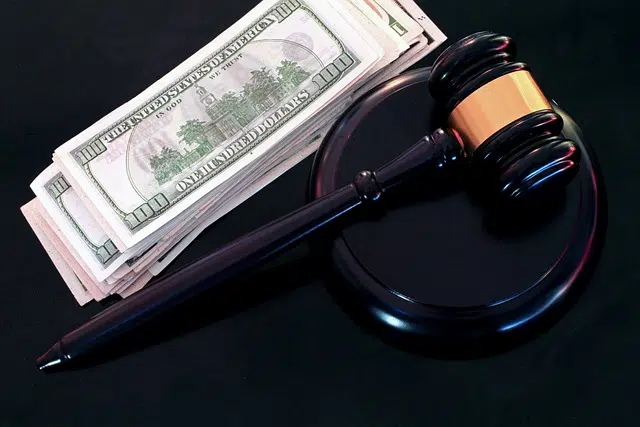
When an official appropriates the public money that he was supposed to manage, he commits the crime of embezzlement.
The term embezzlement is used in the field of law to name the crime that occurs when a person keeps the public money that he or she was supposed to manage . Embezzlement, therefore, is part of what is commonly known as corruption .
Whoever commits this crime steals funds that belong to the State and that, in theory, it should manage. The concept comes from peculio (whose etymological origin is found in the Latin peculium ), which is the capital that a person granted to his descendant or his servant so that they could use it.
Misuse of state resources
The person who commits this offense defrauds the trust of the State , whose authorities entrusted him with some type of function and enabled him to access public resources. Embezzlement sometimes does not specifically refer to the theft of money , but can also occur when the official in question makes use of certain objects that, in reality, should be available for the common good.
For example: “The Secretary of the Environment was denounced for embezzlement” , “The embezzlement was confirmed when investigators managed to demonstrate that the minister used public facilities for personal parties” , “The manager of the state telephone company attributed the financial problems to the embezzlement committed”. by some executives.”

Embezzlement falls within what is usually mentioned, at a general level, as corruption.
Differences between embezzlement and other types of theft
What differentiates embezzlement from other types of theft or scams, in short, is that the criminal is someone who exercises public functions and who appropriates state resources that he was supposed to guard and manage, abusing his position. This particularity, of course, aggravates the condition of theft .
According to the Colombian Penal Code , to mention one case, the following types of embezzlement are recognized:
* by appropriation : when a public servant appropriates state assets, companies or institutions in which he participates, private assets that have been entrusted to him or parafiscal funds and uses them for his personal benefit. In this case, the penalty may be a minimum of six years in prison or a fine for the value of what was stolen, in addition to being deprived of one's position and public rights for a period equivalent to that of imprisonment;
* for use : if an employee makes use or allows improper use of state property or of companies in which he or she participates, as well as property that he or she is managing or guarding due to his or her duties. The minimum prison term for this type of embezzlement is one year, equal to that of the prohibition from exercising public office. The case of anyone who takes advantage of official services or allows others to do so also belongs to this crime;
* due to another's error : unlike the two previous cases, this type of embezzlement occurs when, by mistake , a third party grants a public servant certain assets that do not belong to him and he uses them for purposes other than those legally provided. It is punishable by one year in prison and prohibition of public functions and rights, as well as a fine (if there is no retention or appropriation, the penalty is reduced by half);
* by different official application : As mentioned above, embezzlement does not always consist of the use of public property to satisfy personal needs or whims. Precisely, in this case a public employee uses the assets (or the companies whose custody or administration has been placed in his charge due to his functions) for purposes other than those officially established, or he follows the orders regarding their use but commit amounts greater than those set in the budget. The penalty consists of a minimum of six months in prison, one year of interruption of the exercise of public functions and a fine.
